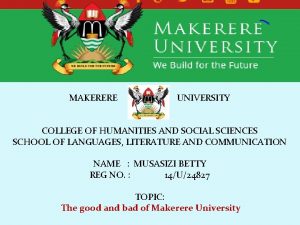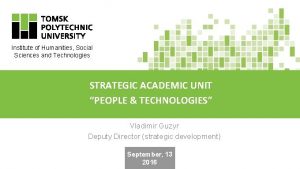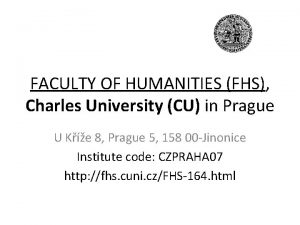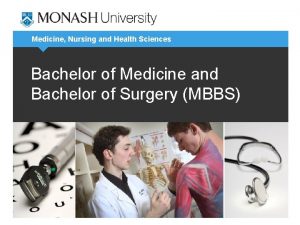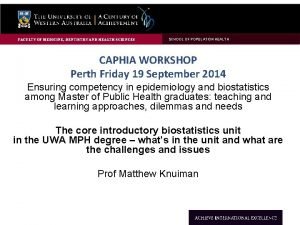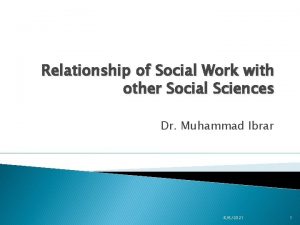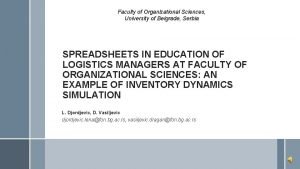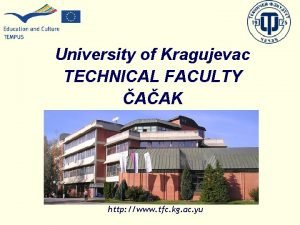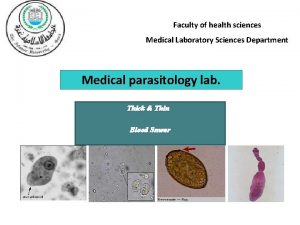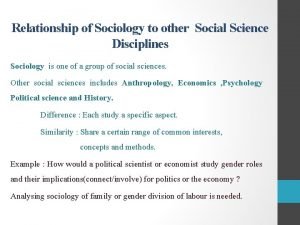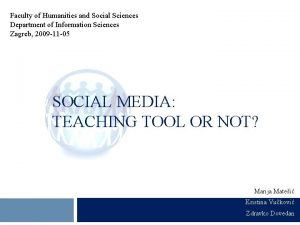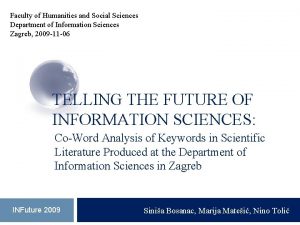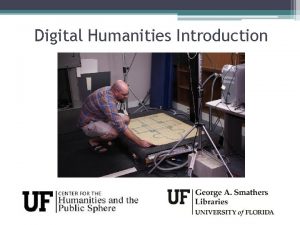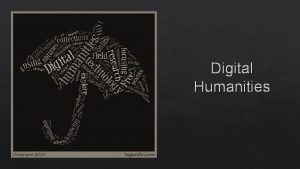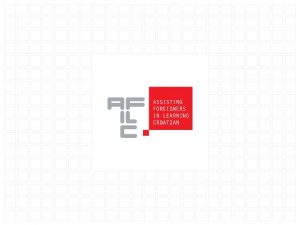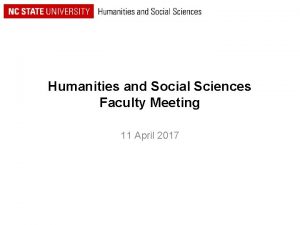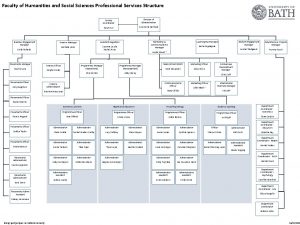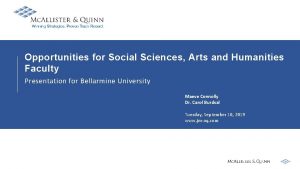Faculty of Humanities and Social Sciences Department of












- Slides: 12

Faculty of Humanities and Social Sciences Department of Information Sciences Zagreb, 2009 -11 -06 TELLING THE FUTURE OF INFORMATION SCIENCES: Co-Word Analysis of Keywords in Scientific Literature Produced at the Department of Information Sciences in Zagreb INFuture 2009 Siniša Bosanac, Marija Matešić, Nino Tolić

2 Predictions are an important part of every decision-making and planning process. Information sciences are a very dynamic scientific field and would require fast and efficient methods for mapping and predicting its development. The aim was to establish methods for data collection and processing as a first step of predicting the future of information sciences.

3 “…the only serious way to think about the future is to have a clear idea, empirically grounded, of our present, and of our past—particularly of our recent past. ” Manuel Castells, Internet Galaxy, 2003

4 Science is a very structured human activity whose progress is meticolously recorded Bibliometric techniques are used to provide the empirical data required for qualitative analyses.

5 Output of the Department of Information Sciences: Educational – study programs, courses, students… Scientific – research projects, scientific literature… Establishing methods for data collection and processing

Co-word analysis 6 Co-word analysis is a bibliometric technique that examines co-occurrence of keywords. .

Data harvesting and proccessing 7 Authors 35 Articles 376 Unique keywords / Tokens Data processing N = 689 N = 1136 Lemmatization Normalization Time period Tools 1995 - 2009 Bibexcel Pajek

1995 - 2009 8

1995 – 2002 9

2002 – 2009 10

Further research and actions 11 An elaborate qualitative analysis of our results, including external factors. Expanding the sample, making the content descriptors more accurate, increasing the resolution of results representation. Developing automatised methods and tools to make the analysis quicker and more efficient. Influencing the decision- and policy-makers to make use of the results provided.

12 Thank you for your attention! Q&A?
 College of humanities and social sciences
College of humanities and social sciences Ihsst
Ihsst Ldap cuni
Ldap cuni B'faculty of humanities agh', b'poland'
B'faculty of humanities agh', b'poland' Faculty of medicine nursing and health sciences
Faculty of medicine nursing and health sciences Pubh4401
Pubh4401 Relation of social work with other social sciences
Relation of social work with other social sciences Faculty of organizational sciences
Faculty of organizational sciences University of kragujevac faculty of technical sciences
University of kragujevac faculty of technical sciences University of pecs faculty of health sciences
University of pecs faculty of health sciences The human sciences tok
The human sciences tok Nit calicut chemistry
Nit calicut chemistry Difference between sociology and other social sciences pdf
Difference between sociology and other social sciences pdf
